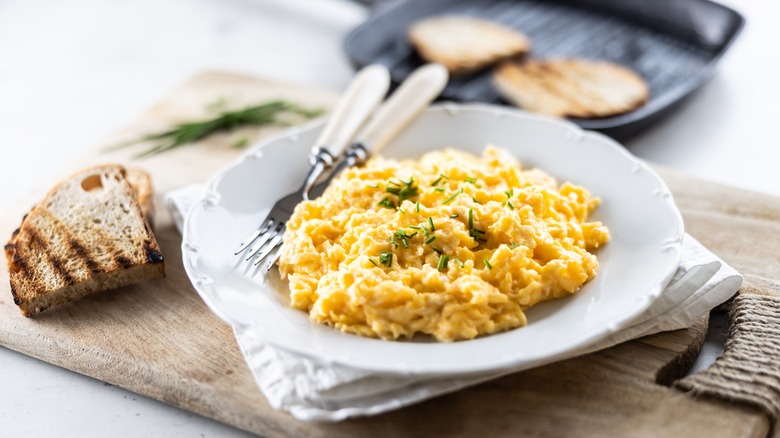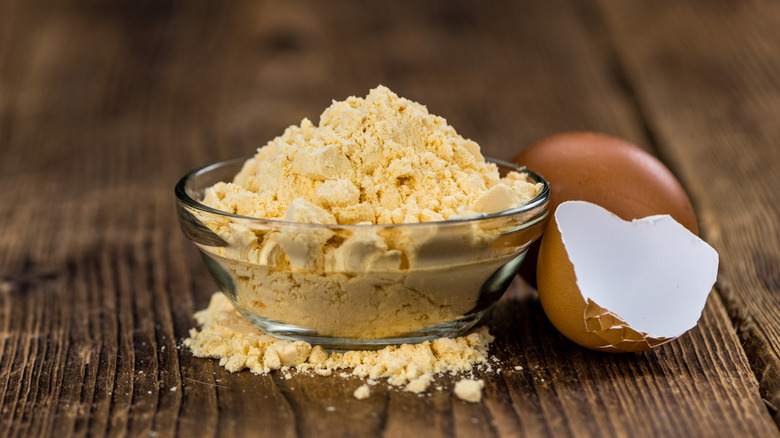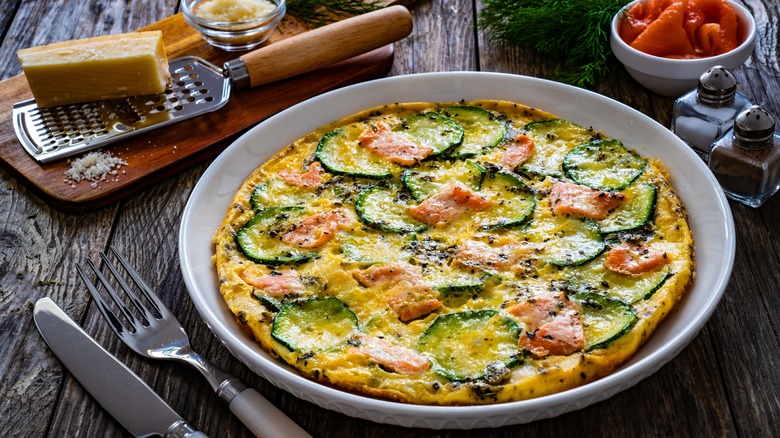This Is How Most Hotels Make Their Breakfast Eggs
Whether it's first-rate room service or your standard brunch buffet, there's something about a hotel spread that always feels extra special. Yet, have you ever wondered how busy hotels manage to consistently churn out mass quantities of the perfect scramble each morning? The answer lies in a surprisingly simple secret: powdered eggs.
Behind the scenes, hotel kitchens are employing this crucial ingredient in their breakfast assembly line to save time and control quality. But first the eggs go through a meticulous process before reaching your plate. The dehydration process starts with fresh eggs that are beaten and then pasteurized to reduce any risk of salmonella. Then, the moisture is removed through controlled heat. Spray-drying is a popular technique that turns the liquid into tiny droplets using a sprayer, before putting them in a drying chamber where the water evaporates. What's left behind is a powdery substance that retains the flavor of fresh eggs, which gets stored in food-safe containers to later be reconstituted.
Why dehydrated eggs are used for hotel breakfasts
The use of dehydrated eggs offers several advantages for hotels. For one, it simplifies the cooking process by eliminating the need to crack hundreds of fresh eggs for the scores of guests that pass through. They also never have to worry about complaints related to an errant shell fragment. The best reason is that the powder guarantees consistency in taste and texture since it yields the same result every time the eggs are rehydrated and cooked. Finally, egg powder has a much longer shelf life compared to its fresh counterparts (up to 10 years), which means reduced food waste and logistical challenges for hotel operations.
Convenience and efficiency are obvious advantages, but some may question the nutritional value of this powdered version compared to fresh eggs. According to the nutrition facts page from the powdered egg maker, Hibernate, the amount of whole powdered egg (2 ½ tablespoons) that equals one normal egg is comparable in protein content. However, manufacturers often fortify dehydrated eggs with anticaking agents, along with additional vitamins and minerals to compensate for any potential losses, ensuring a fresh and nutritious breakfast choice.
How to cook with dehydrated eggs at home
Incorporating dehydrated eggs into home cooking offers similar benefits to those enjoyed by hotels: convenience, consistency, and extended shelf life, all while saving you precious real estate in the fridge. And you shouldn't limit yourself to breakfast — fluffy scrambled eggs and hearty omelets may be your go-to for the whole-egg edition of this powdered ingredient, but home cooks can experiment with different dehydrated egg products in a variety of recipes.
Alternative versions, consisting of only egg whites or yolks, can also be substituted in just about any recipe from beverages to baked goods by simply rehydrating with water or milk. Adding a few scoops of powdered egg whites to your post-gym protein shake can help meet your macros for the day. Turn to a yolks-only mix to craft a tart and creamy lemon curd or even homemade mayonnaise. The sky's the limit on where you can sprinkle these space-age œufs.


